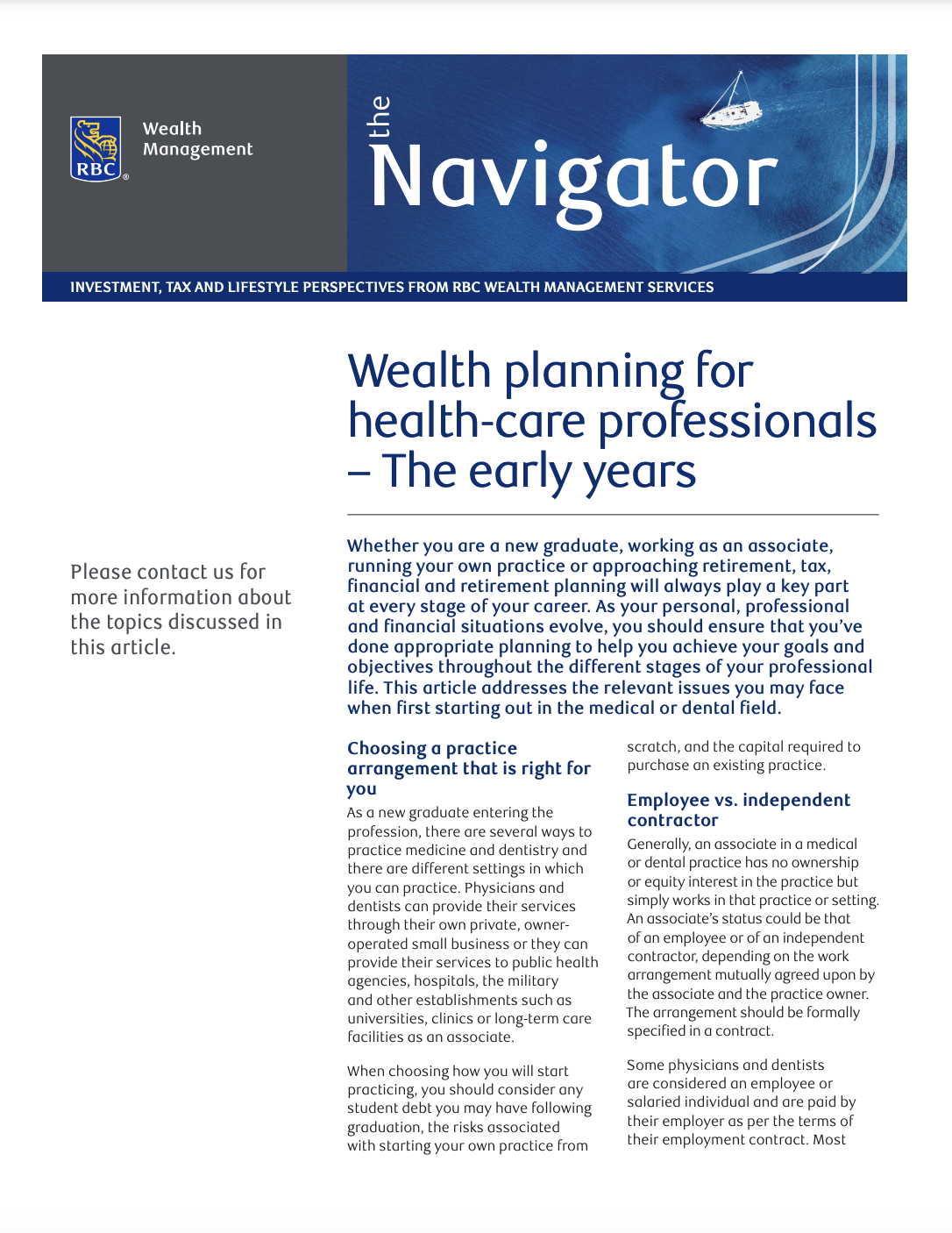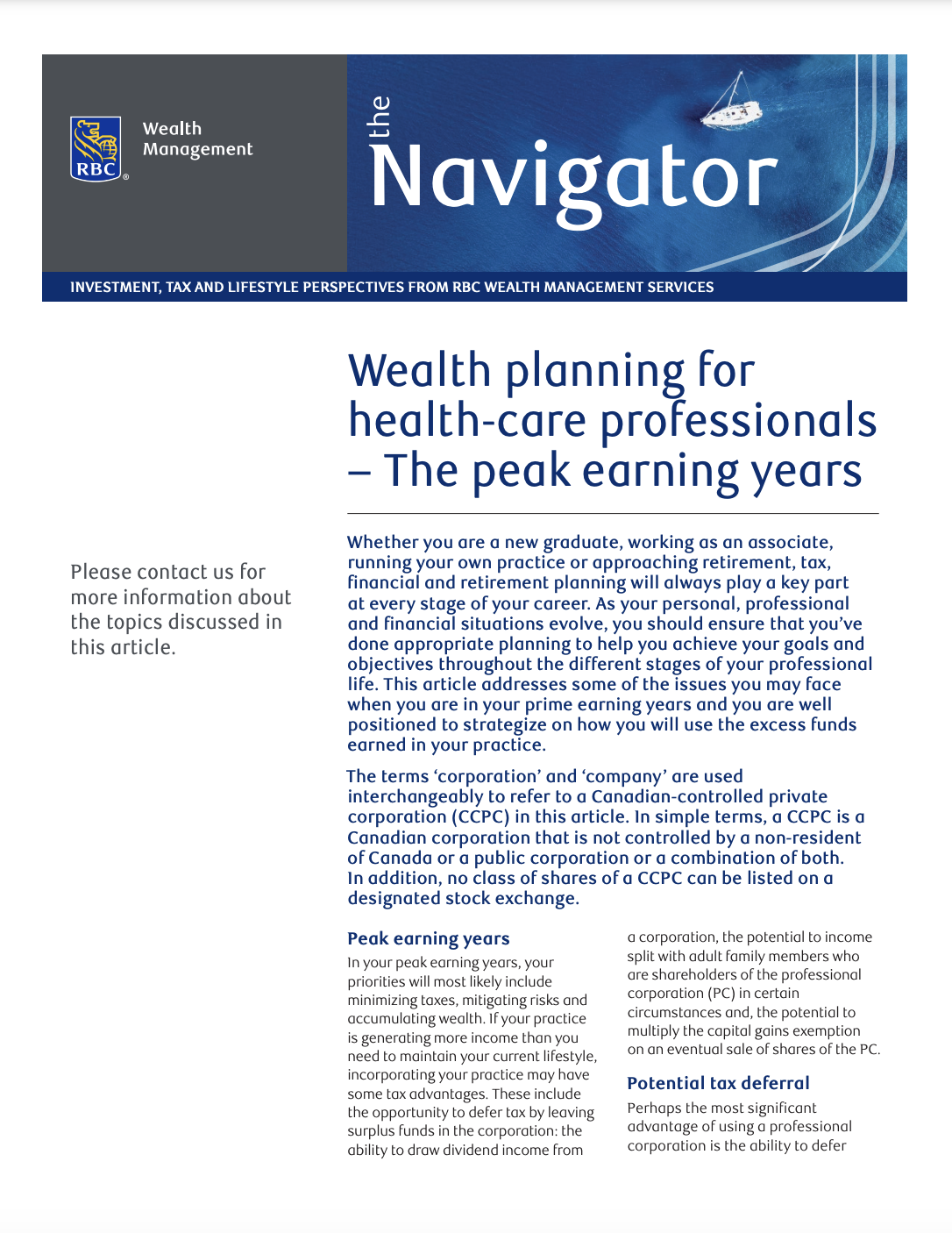Wealth Management Resources Exclusive to Health-Care Professionals
Whether you are a new graduate, working as an associate, running your own practice or approaching retirement - tax, financial and retirement planning will always play a key part at every stage of your health-care career. As your personal, professional and financial circumstances evolves, you should ensure that proper planning is in place to help you achieve your goals and objectives throughout the different stages of your professional life.
Having worked with many health-care professionals, I am familiar with the complexities involved in managing your finances and wealth, balancing your family needs, while at the same time, attending to a demanding life-saving career as a medical professional.
In addition to personally helping you plan for your goals and dreams throughout all stages of your professional career, I am pleased to provide a series of discussion topics on tax, financial and retirement planning to be considered at various stages of your career:
Part 1: The Early Years

Part 2: Starting Out on Your Own

Part 3: The Peak Earning Years

Part 4: Preparing for Retirement

Tax Planning Strategies for Health-Care Professionals
There are specific personal and corporate tax planning solutions for medical professionals that can assist you in reducing your tax burden and maximizing your after-tax income, including:
An Individual Pension Plan (IPP) is a defined benefit pension plan established by an incorporated company (including a professional corporation). An IPP may enable you, as a health-care professional to enhance your retirement income by making higher tax-deductible contributions than the maximum permitted for RRSPs. Working with our preferred actuarial provider, Buck Consultants, we will help you set up an IPP that meets your needs.
A Family Trust may allow you, as a health-care professional to use your personal non-registered investments to assist low-income children or grandchildren with their expenses (e.g. private school tuition, post-secondary education, extra-curricular activities), while benefiting from a tax-efficient income splitting strategy.
A Spousal Loan may allow you, as a health-care professional to take advantage of your spouse’s lower marginal tax rate by shifting investment income from you, as the high income earner, to a lower income earning spouse using a prescribed rate loan.